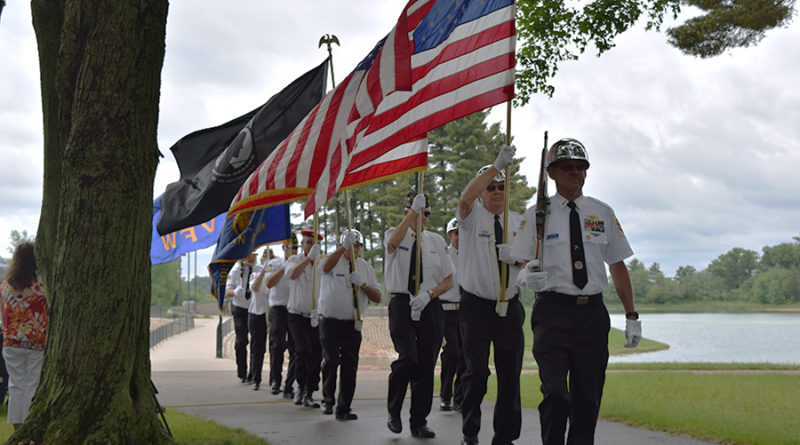Editorial: On Veterans Day, remember some vets, families, continue to sacrifice
By Brandi Makuski
Some regard today as just another day on the calendar. It’s not.
Hopefully, you’ve all heard the story: originally known as Armistice Day, the treaty ending World War I—known at the time as “The Great War”—was signed between the Allied Nations and Germany in the Palace of Versaille. It is generally regarded as “the war to end all wars.”
It was signed on the 11th hour of the 11th day of the 11th month of the year and was declared a federal holiday in 1938. In 1954, after having been through both World War II and the Korean War, the 83rd U.S. Congress, at the urging of veterans service organizations, changed “Armistice” to “Veterans,” and turned the federal holiday into a day that honors American veterans of all wars.
We’ve since lost all of the soldiers who fought in World War I (the last surviving WWI veteran died in 2011), and we’re losing many from World War II—often referred to as “The Greatest Generation.” Soldiers of both battlefronts returned home to great celebration and parades, hailed as heroes.
But there were no such celebrations for soldiers coming home from the wars in Korea or Vietnam. The horrors of war were only compounded by anti-war protests upon their return, as well as the lack of mental health and other follow-up services provided by the very country they had just served. As a result, the U.S. government began to recognize Post Traumatic Stress Disorder, previously known as the (arguably) more aptly-named “Shell shock,” as a mental condition affecting combat veterans.
But little was done until recently to offer soldiers the help they needed. In 2014, the United States Department of Veterans Affairs reported that between 1979 and 2014, 20 veterans a day committed suicide in the U.S.
According to the department’s most recent annual report (data from 2017 but not released until 2019), that number has declined to about 16 per day: of the 45,390 American adults who died from suicide in 2017, 6,139 were United States veterans.
While post-deployment services have improved since the 1970s, some might argue there’s still not enough being done to help soldiers who defend our country. Since 2008, more than 60,000 U.S. veterans have taken their own lives. That death toll is greater than the number of United States soldiers who died during the Vietnam War itself.
This statistic serves as a stark reminder that soldiers need mental health treatment just as much as medical care for their physical injuries.
Today, communities across the nation are also home to veterans of The Gulf War, and wars in Somalia, Bosnia, Kosovo, and Afghanistan, to name a few. These veterans are younger, and some may have returned home to celebration—and these days, the popular “surprise” return often recorded by cell phone video—but they are just as susceptible to mental health problems as those who came before them.
Their families, too, serve our country. They sacrifice time and milestones with their loved one, constantly worry about their safety, and may suffer financially due to the absence.
Enlisting in the Armed Forces, whether voluntarily or by conscription, forever changes a person. They become part of a very tight-knit family unit that cannot be adequately described to someone who hasn’t served. For those who’ve served in battle, that connection between themselves and their battle buddy, their squad, or their platoon, becomes sacrosanct.
When they leave military service, the sacrifices continue. It’s difficult, transitioning back into a civilian world, where speed, efficiency, quality, and procedures are often below the military standards a soldier has been trained to rely upon for their survival. That can be hard to verbalize to another person who hasn’t been through it themselves. It can also make reconnecting when their families and friends a daily struggle.
You don’t have to know what a soldier sacrificed, or is currently sacrificing, to be grateful. All you need to do is say, “Thank you.”
To those who have served this country and continue to serve, and their families, we thank you.

